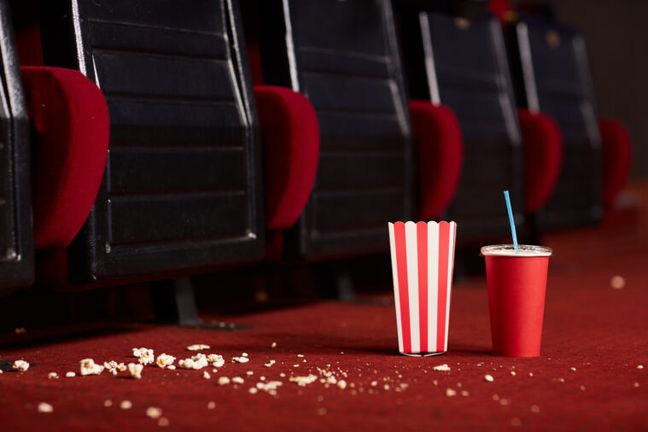A Los Angeles jury acquitted a neurosurgeon of malpractice allegations stemming from acoustic neuroma surgery performed on a patient in 2014.[i] David Pullman filed a $120 million malpractice suit against Dr. Marc Schwartz, a neurosurgeon, among others, alleging professional negligence, intentional misrepresentation, and lack of informed consent following trans labyrinthine craniotomy surgery to remove an acoustic neuroma in his right ear. The plaintiff sought $120 million in damages for his injuries.
The Facts
The plaintiff’s suit maintained that doctors, including Dr. Schwartz, pressured him into undergoing an “unnecessary” surgery that presented a substantially greater risk than other non-invasive options. He accused the doctors of committing medical battery for violating the terms of his limited consent for the procedure, which required Dr. Schwartz to halt the procedure if the facial nerve showed any signs of damage. Dr. Schwartz denied the allegations and claimed the operation was performed successfully, contrary to the plaintiff’s claim. The facial nerve injury was caused by an ENT surgeon who opened the plaintiff’s skull to give Dr. Schwartz access to the facial nerve.
Following several weeks of trial in Los Angeles County Superior Court, a jury combed through a complex, 17-page jury verdict form to render a verdict for Dr. Schwartz. Dr. Schwartz was represented by Louis “Duke” DeHaas of LaFollette Johnson DeHaas & Ames. DeHaas, in an interview with Courtroom View Network, attributed the verdict to Dr. Schwartz’s vulnerability on the stand, the folding of plaintiff’s experts, and the plaintiff’s credibility.[ii]
First, Dr. Schwartz’s two-and-a-half days of testimony were critical to his victory, according to DeHaas. Dr. Schwartz presented as a credible and vulnerable witness to the jury, even being able to criticize himself despite being one of the most successful neurosurgeons in California. Second, the plaintiff’s expert witnesses lost credibility with the jury upon their cross-examination by the defense.
Finally, DeHaas shared, the plaintiff’s likeability contributed to the jury’s verdict for Dr. Schwartz. The plaintiff’s claim for damages was $120 million—a number grossly disproportionate to his claimed injuries, according to DeHaas. This provided the defense the chance to challenge the sincerity of the plaintiff’s allegations and ultimately contributed to the jury’s perception of his credibility.
Takeaways
The verdict is an example of tested trial techniques that work. Put another way, themes involving responsibility, reasonableness, and common sense, paved the way for a successful defense and should serve as a blueprint for future defense counsel trying any complex case.
DeHaas’ comments also illustrate the importance of employing the Tyson and Mendes methods of accepting responsibility and personalizing the defendant. It appears Dr. Schwartz was sincere, genuine, and human while on the stand, even exhibiting a willingness to accept responsibility for what he perceived as shortcomings. The vulnerability translated to likeability and clearly resonated with the jury.
Finally, the defense’s ability to damage the credibility of important witnesses for the plaintiff shows a well-prepared cross-examination of the opposing counsel’s expert witness can be debilitating to the opposition, especially if tailored tactics are employed to discredit their qualifications and findings. The less credible the expert witness seems, the less their ability to educate the jurors, thus diminishing their persuasive value and effectiveness.
Keep Reading
More by this author
Sources
[i] David Pullman v. Marc Schwartz, MD(Los Angeles County Superior Court) No. BC597684.
[ii] David Siegel,“Renowned Neurosurgeon Prevails at $120M Malpractice/Battery Trial Over Patient’sFacial Paralysis,”Courtroom View Network, Feb. 21, 2023,https://blog.cvn.com/renowned-neurosurgeon-prevails-at-120m-malpractice/battery-trial-over-patients-facial-paralysis?utm_campaign=Best.

 Author: Samuel Frasher
Author: Samuel Frasher
 Editor: Ashley Paige Fetyko
Editor: Ashley Paige Fetyko
 Cannabis Workers Allege Quota to Trim 4 Pounds a Day Violates the California Labor Code
Cannabis Workers Allege Quota to Trim 4 Pounds a Day Violates the California Labor Code
 The Ninth Circuit Reminds Us: Every Word Matters
The Ninth Circuit Reminds Us: Every Word Matters
 NO WAY, PRO SE! The Consequences of Abusing the Judicial System as a Pro Se Litigant in Colorado
NO WAY, PRO SE! The Consequences of Abusing the Judicial System as a Pro Se Litigant in Colorado
 Victim of Financial Mismanagement or Unlawful Retaliation? New Jersey City University Program Founder Claims School Retaliated After Reporting Alleged Sexual Harassment
Victim of Financial Mismanagement or Unlawful Retaliation? New Jersey City University Program Founder Claims School Retaliated After Reporting Alleged Sexual Harassment
 “Real Housewives” Gets a Reality Check
“Real Housewives” Gets a Reality Check
 Missing a Chapter: Insufficiency of Expert Deposition Testimony in Medical Malpractice Litigation
Missing a Chapter: Insufficiency of Expert Deposition Testimony in Medical Malpractice Litigation
 Crash Course: Why Summary Judgment Misses the Mark in Illinois Multi-Cause Limousine Crash Collision
Crash Course: Why Summary Judgment Misses the Mark in Illinois Multi-Cause Limousine Crash Collision
 Bitter Truths: Lead, Cadmium, and Defective Pleadings in California Chocolate Class Action
Bitter Truths: Lead, Cadmium, and Defective Pleadings in California Chocolate Class Action
 The Law of Unintended Consequences: Including Insurance Brokers in Litigation Strategy Communication May Waive the Attorney-Client Privilege
The Law of Unintended Consequences: Including Insurance Brokers in Litigation Strategy Communication May Waive the Attorney-Client Privilege
 Modern Headache: Actress Sofia Vergara is Sued for $1.7 Million by Former Contractor
Modern Headache: Actress Sofia Vergara is Sued for $1.7 Million by Former Contractor
 A League of Their Own: Sports Leagues’ Novel Argument Fails to Persuade California Appellate Court
A League of Their Own: Sports Leagues’ Novel Argument Fails to Persuade California Appellate Court
 Up In Smoke: Insurer Sues Landlord For Failure to Obtain Liability Insurance from Tenant
Up In Smoke: Insurer Sues Landlord For Failure to Obtain Liability Insurance from Tenant
 The Truck Stops Here: Dispute Over Trucking Company’s Liability Makes Its Final Stop at the Ninth Circuit
The Truck Stops Here: Dispute Over Trucking Company’s Liability Makes Its Final Stop at the Ninth Circuit
 You’re It: California Federal Court Tags Insurer to Defend in Habitability Case
You’re It: California Federal Court Tags Insurer to Defend in Habitability Case
 That’s a Wrap: California Appellate Court Shutters Theater Chain’s COVID-19 Business Interruption Bid
That’s a Wrap: California Appellate Court Shutters Theater Chain’s COVID-19 Business Interruption Bid
 Out of This World! California Supreme Court Agrees to Review COVID-19 Business Interruption in Another Planet Ent., LLC
Out of This World! California Supreme Court Agrees to Review COVID-19 Business Interruption in Another Planet Ent., LLC
 California Federal Court Maintains Broad Duty of Insurer to Defend
California Federal Court Maintains Broad Duty of Insurer to Defend